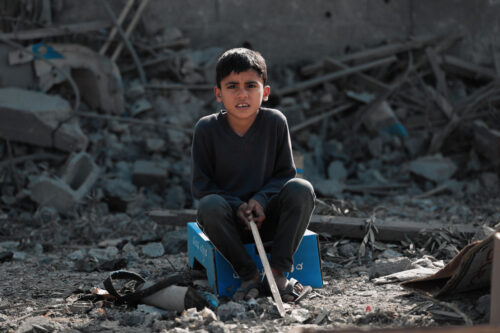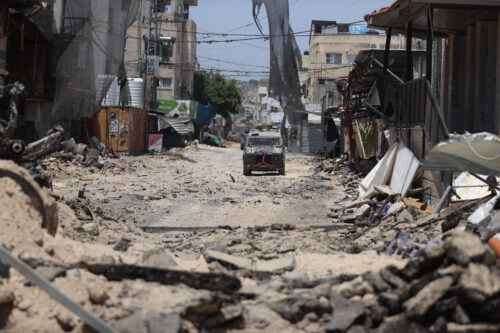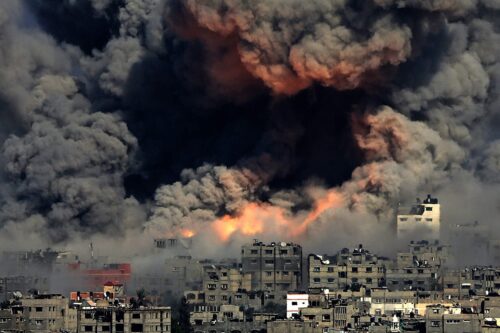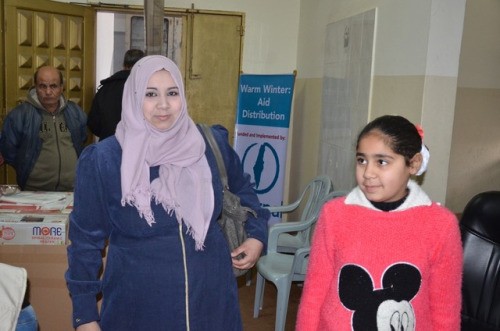Message in a Bottle: education and insecurity for Palestine refugees

“Message in a Bottle” – on his return to Spain following his first voyage to the New World, Christopher
Columbus’s
ship entered a severe storm. Columbus threw a report of his discovery along
with a note asking it to be passed on to the Queen
of Castile,
in a sealed cask into the sea, hoping the news
would make it back even if he did not survive. Columbus did survive and the
sealed report was never found, or, at least, its discovery never reported.
So what does this have to do with a parliamentary meeting we
attended earlier today with the UNRWA Commissioner-General and several other
NGOs tirelessly working to ensure that the plight of Palestinians remains on
the global agenda?
Pierre
Krähenbühl explained how UNRWA’s #SOS4Gaza: Message in a Bottle campaign
tells the story of a group of Palestine refugee children from Beach Camp in
Gaza. Frustrated by the bleak conditions in which they live, the children
decide to put messages expressing their hopes and dreams in bottles, which they
send out to sea in the hopes that help will come.
These hopes and dreams are real, I have them, you have them, and your parents
have them. Unfortunately, these hopes and dreams can seem so far at sea for
some that they may never come true. However bleak this may sound, it is hard
not to feel dejected by the ever increasing issues that Palestine faces.
There is the matter of the 49-year old occupation, and as Pierre Krähenbühl reluctantly pointed out, the
international climate is proving a political solution is not within sight. There
is growing scepticism and debate over the logic of investing tax payer money
into Gaza if there will be further destruction in a year or two years’ time. In
the absence of the political will to make a positive change, these debates and
scepticism seem heartless and indefensible. On the other side, for tax payers
and the wider public, awareness and sympathy with Palestine are growing, as are
global initiatives to affect change. There are expectations and hope that states realise the
importance of supporting peace and development aid for Palestinians in the long
term.
Education is not only highly valued by Palestinians but is also hugely
important for the growth and positive development of society. 77% of UNWRA’s
core budget goes towards education and with a funding gap of $180 million,
coupled with the upcoming start of the academic year, education and the quality
of education is at severe risk amongst Palestine refugees.
As organisations working on the ground, both UNRWA and
Interpal know first-hand how vital education is; a real solution to the
slimmest of chances hopes and dreams coming true. Understanding this, we have
partnered with UNRWA to support an upcoming educational programme; an
innovative project, beginning shortly, using sophisticated technology and
software in teaching blind and partially impaired children in Gaza.
Despite any scepticism or how hopeless things may seem, the
Palestinians themselves show us the importance of working towards their
attainment of dignity and human rights.
As the meeting came to a close, I was left thinking whether
there is a solution to the problem, whether states will uphold their pledges,
whether they will start a valid debate for Palestinians and Israelis to live in
peace and whether, unlike Christopher Columbus, the messages of the Beach Camp
refugee children will be acknowledged.
By Zoe, Interpal’s Projects Assistant
Calculate your Zakat
Confused about how to calculate your Zakat? Try our simple-to-use calculator




